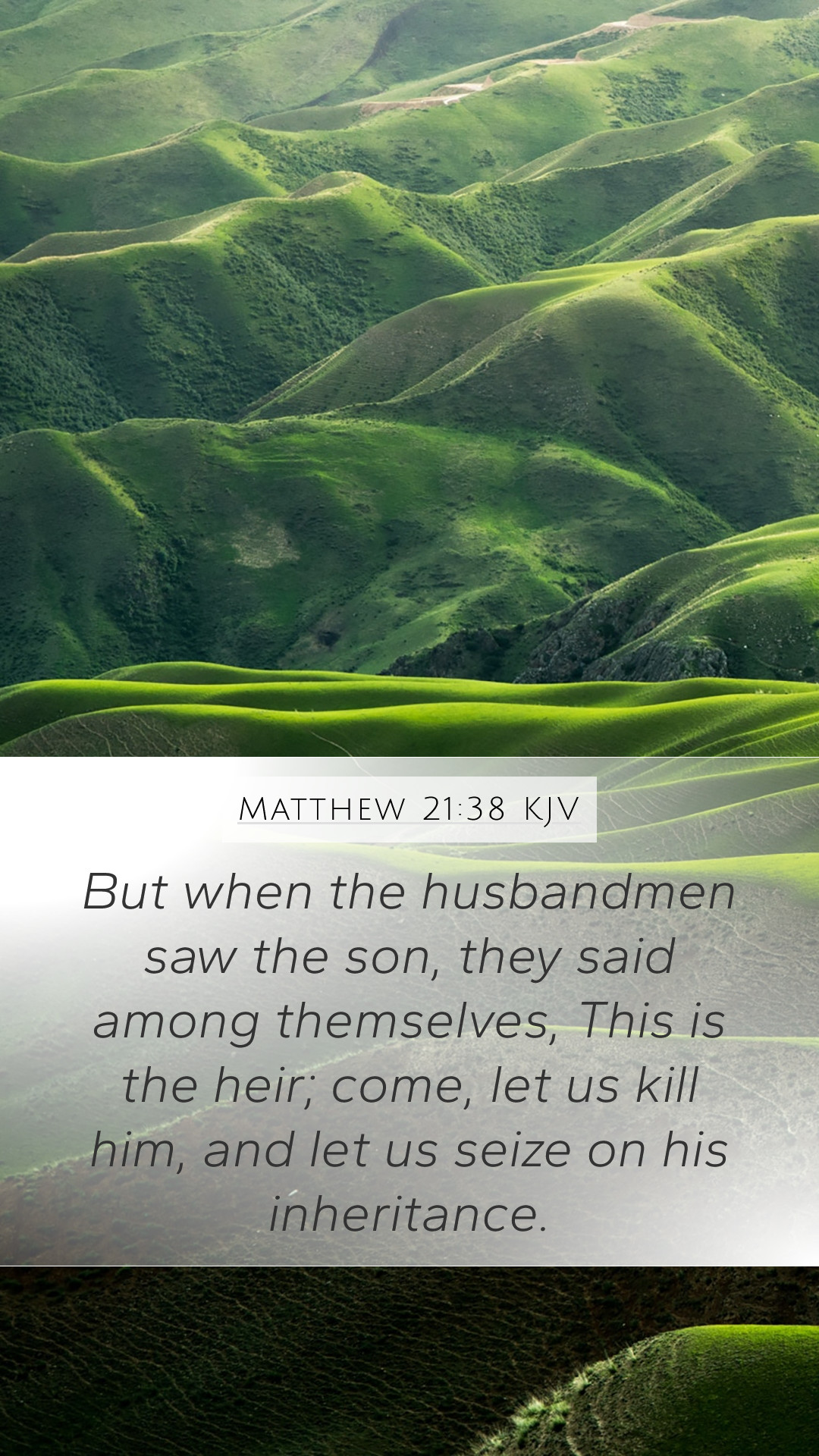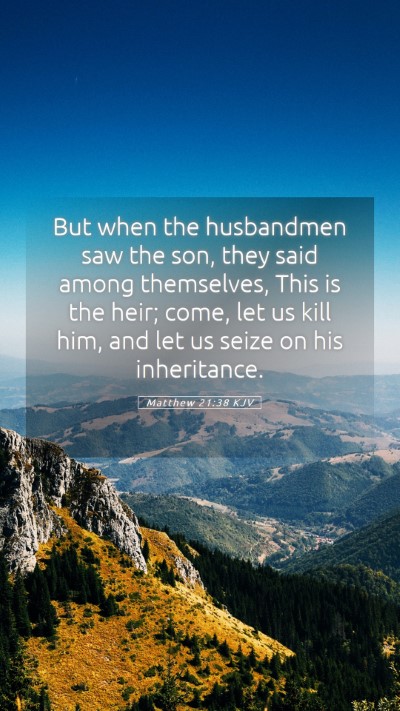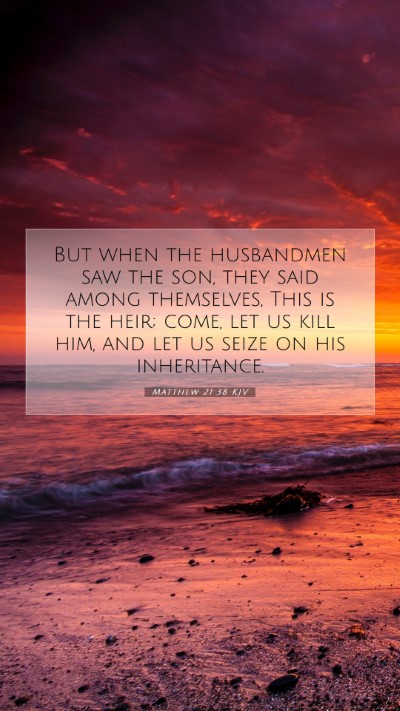Understanding Matthew 21:38
Bible Verse: Matthew 21:38 - "But when the tenants saw the son, they said to themselves, ‘This is the heir. Come, let us kill him and have his inheritance.’"
Overview of the Verse
This verse is part of a parable that Jesus tells regarding a landowner and his vineyard. The tenants represent the religious leaders of Israel, while the son symbolizes Jesus himself. The action of the tenants in plotting to kill the son is emblematic of the rejection of Christ and foreshadows his crucifixion. This passage highlights themes of stewardship, rebellion, and divine judgment.
Primary Insights from Public Domain Commentaries
-
Matthew Henry:
Henry interprets this verse as an illustration of the people's rejection of Jesus and the consequences of their actions. He emphasizes that the tenants recognize the son as the heir, which signifies their awareness of the rightful ownership of the vineyard, yet they choose to act in defiance, reflecting humanity's tendency to rebel against Divine authority.
-
Albert Barnes:
Barnes highlights the significance of the vineyard representing Israel and God's expectation of fruitfulness from His people. The wicked tenants symbolize the Jewish leaders who failed to acknowledge the authority of Jesus. This verse serves as a warning about the judgment that awaits those who reject the son of God.
-
Adam Clarke:
Clarke provides a contextual background, explaining the historical significance of the vineyard parable. He emphasizes that the actions of the tenants were not only evil but also reflected a major turning point in the relationship between God and Israel. Clarke points out that this act of violence signifies the ultimate rejection of Jesus by the very people who were charged with caretaking God's message.
Thematic Analysis
This verse encapsulates several key themes, including:
- Rebellion Against God: The tenants' deliberation to kill the son illustrates the broader human resistance to God's will.
- Recognition of Authority: Even in their rebellion, the tenants acknowledge the son's inheritance, signifying a deep understanding of their culpability.
- Consequences of Sin: The verse foreshadows the ultimate consequence of rejecting the Messiah, which is spiritual death and separation from God.
Application of the Verse
This verse encourages readers to reflect on their relationship with God and the importance of recognizing and honoring Jesus Christ as the heir and Savior. It invites believers to consider how they can live fruitfully in God's vineyard, rather than being likened to the tenants who acted on selfish desires.
Cross References
- Isaiah 5:1-7 - The parable of the vineyard as a metaphor for Israel.
- Matthew 22:1-7 - Another parable of the wedding feast that conveys similar rejection of God's invitation.
- Luke 20:9-16 - A parallel account of the parable of the wicked tenants.
Conclusion
Matthew 21:38 serves as a profound reminder of the human inclination to reject divine authority and the grave repercussions of such actions. Understanding this verse enables believers to appreciate the gravity of Jesus' mission and to strive for a fruitful relationship with God. As we study this scripture, we can gain insights into God's nature, our responsibilities, and the importance of heeding His call.


